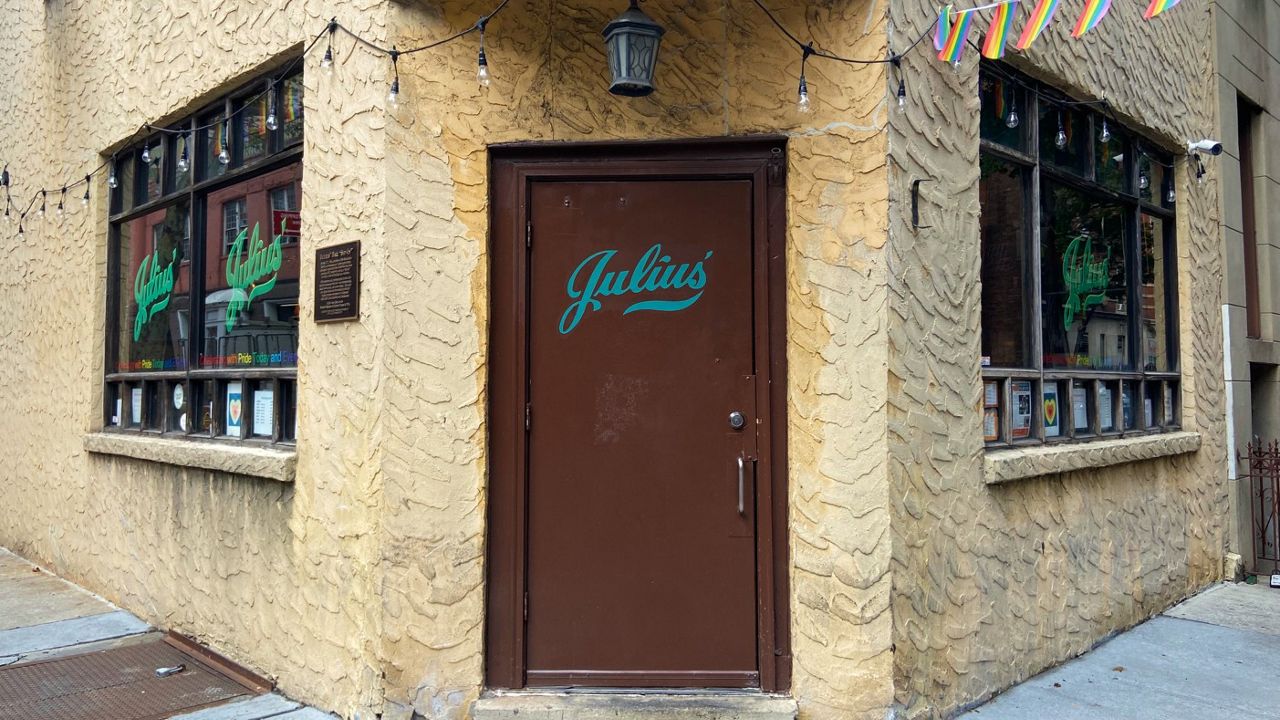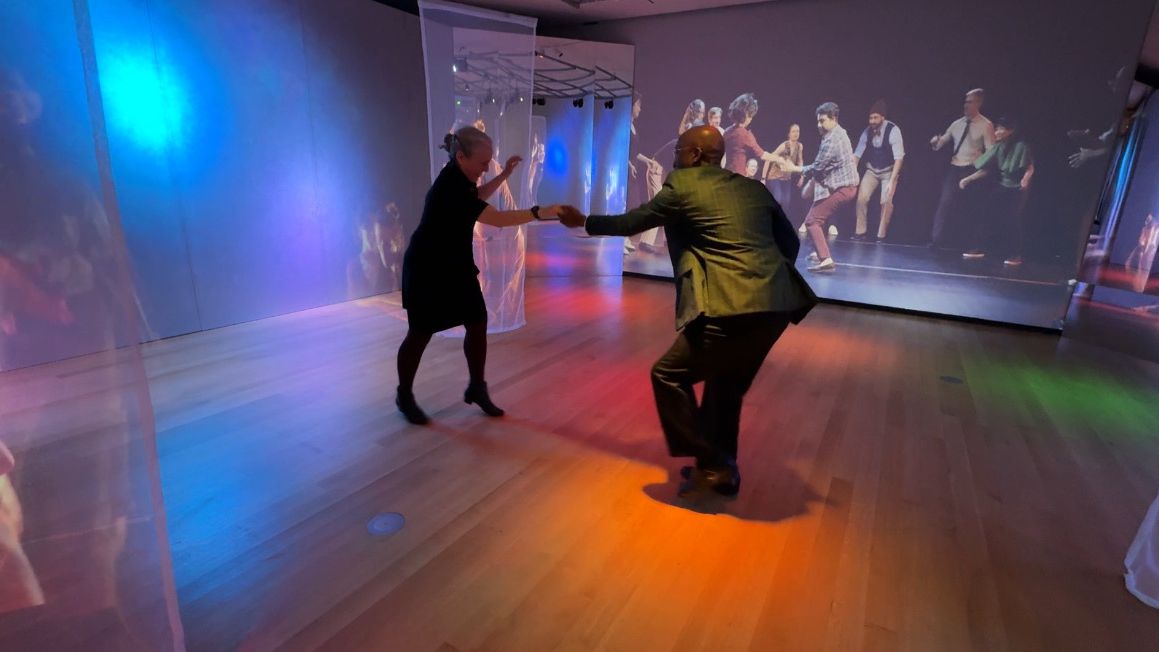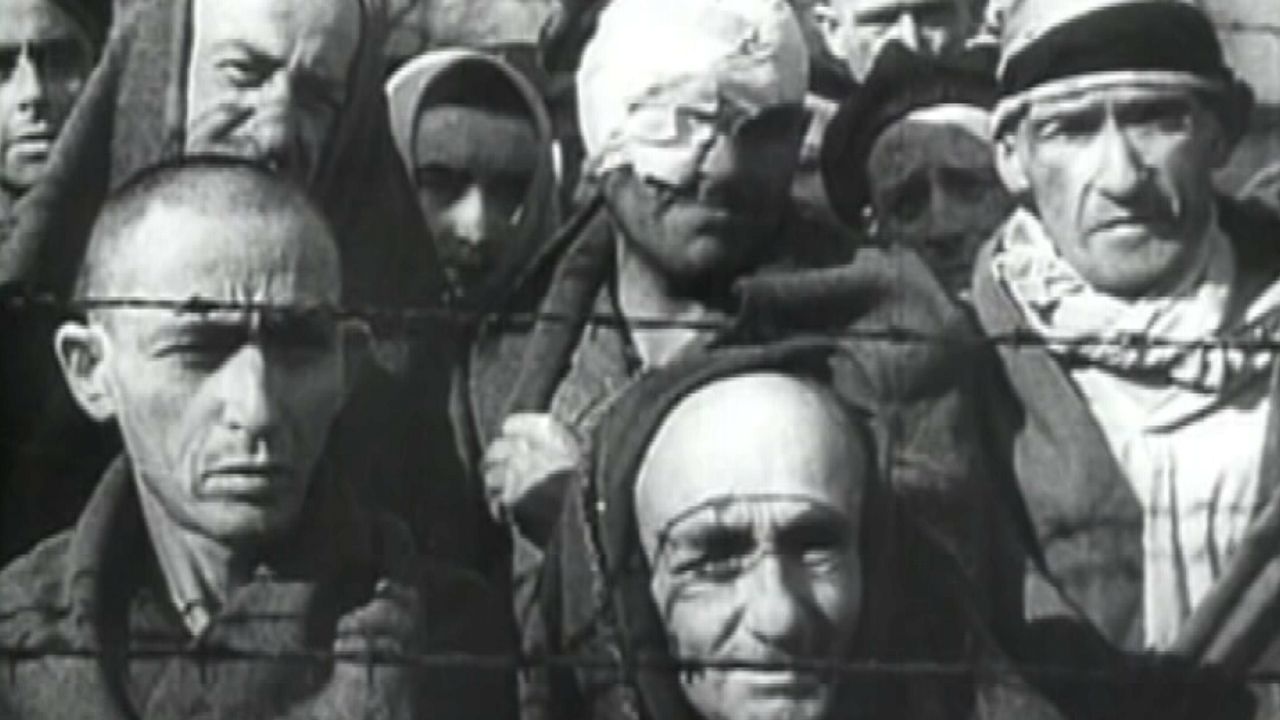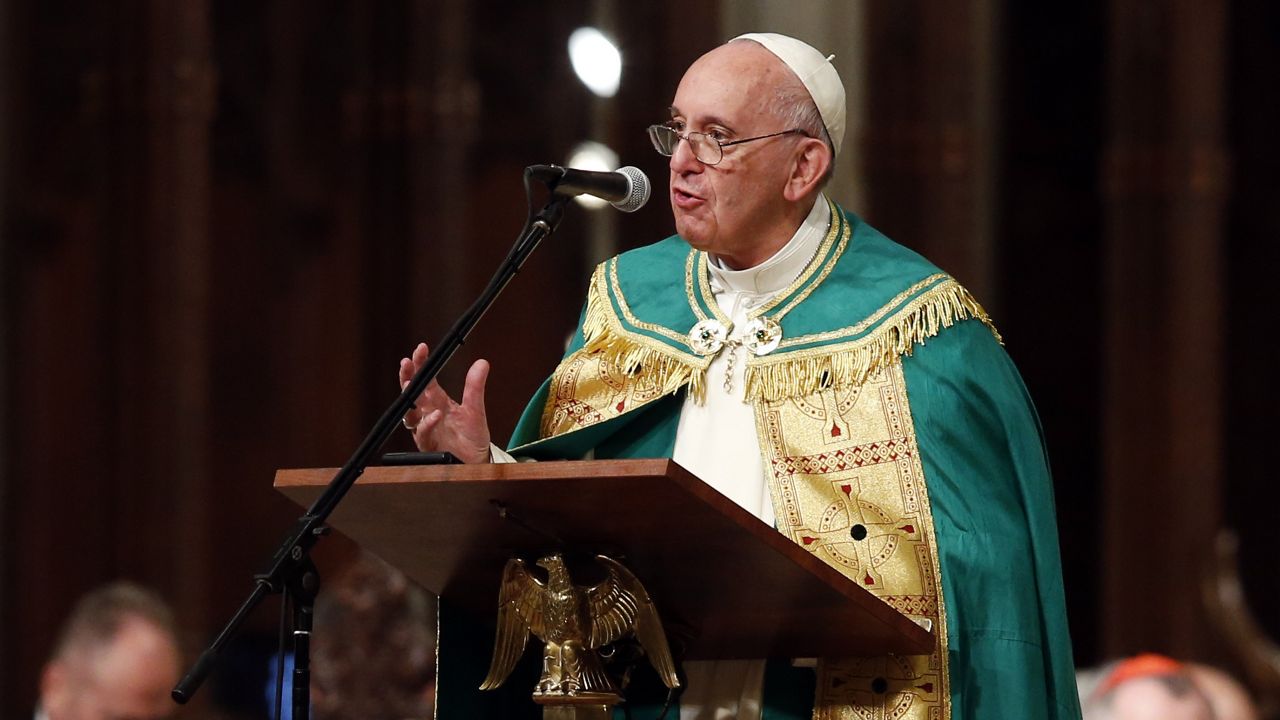Julius’, the oldest gay bar in the five boroughs, took another step toward becoming a New York City landmark on Tuesday as nearly a dozen people testified in favor of historic designation for the site.
Experts, LGBTQ activists and the bar’s owner threw their support behind the push to landmark the 19th century building during a New York City Landmarks Preservation Commission hearing Tuesday morning.
The bar on West 10th Street in Greenwich Village served as the site of a pivotal protest in the LGBTQ rights movement three years before the 1969 Stonewall Uprising.
What You Need To Know
- Julius’, the oldest gay bar in the five boroughs, took another step toward becoming a New York City landmark on Tuesday as nearly a dozen people testified in favor of historic designation for the site
- On April 21, 1966, the bar was the site of a so-called “Sip-In” protesting regulations that made it illegal for bars and restaurants to serve people suspected of being gay or lesbian
- The LPC will vote on the bar’s designation at a public meeting set to take place “in the very near future,” a spokesperson for the agency said Tuesday
“The Julius’ bar building is New York City’s most significant site of pre-Stonewall LGBTQ activism,” Kate Lemos McHale, the LPC’s director of research, said at the start of the hearing.
The 11 speakers who offered their testimony all agreed.
“As the owner of Julius’, I enthusiastically support the proposed designation of the building as an individual landmark. This historic bar means so much to so many people, and it means so much to me,” bar owner Helen Buford said. “In addition to the wonderful community that makes Julius’ what it is, I am proud of the role that the bar played in the early days of the LGBTQ rights movement.”
On April 21, 1966, the bar was the site of a so-called “Sip-In” protesting regulations that made it illegal for bars and restaurants to serve people suspected of being gay or lesbian.
During the protest, three members of the Mattachine Society, a gay rights organization in the city, announced that they were gay, asked if the bartender would serve them, and were refused.
The incident quickly garnered media attention, highlighting the level of discrimination LGBTQ New Yorkers faced at the time.
Activist Randy Wicker, who testified during Tuesday’s hearing, said he joined the Mattachine Society in 1958 — and was there in 1966 to witness the “Sip-In.”
“The ‘Sip-In’ at Julius’ bar was gay people’s declaration of independence from mob rule,” Wicker said. “It resulted in the recognition of our constitutional right to public assembly and accommodation.”
The LPC will vote on the bar’s designation at a public meeting set to take place “in the very near future,” a spokesperson for the agency said Tuesday.









